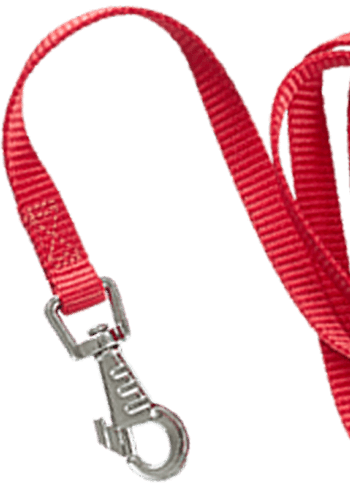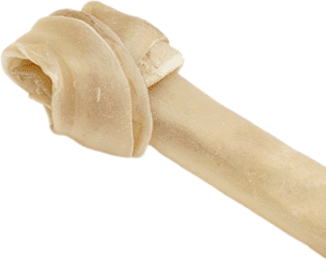


Going to the vet is important for any dog, even if they’re not sick. But each dog breed has a unique life span and set of common health challenges. That goes for one of our favorite breeds—Labrador Retrievers—too.
However, your Lab can live a long and happy life with preventive care. Find out how to help your Lab stay healthy in this guide to the importance of regular vet visits for your Lab puppy.
Routine vet visits are important because they provide your dog with preventive care. As the name suggests, this type of care is all about keeping your pup healthy and spotting potential health concerns early.
When you first bring your new Lab puppy home, you’ll want to set up a puppy vet visit in your hometown within a week. Your dog’s new veterinarian can conduct a wellness exam and establish a baseline picture of your fur baby’s health.
Here’s what this looks like in practice.
Let’s say you bring home a sweet new White Lab puppy. We’ll call her Goose. At eight weeks old, just after you bring her home, Goose attends her first vet visit in your town. She has her vet records from her time with the breeder, too, but this local veterinarian will be with her for the long haul.
During the first puppy vet visit, your veterinarian may do a number of things, including:
If you’re wondering, “What’s a CBC and chemistry panel?” let’s break it down.
CBC stands for complete blood count. Your vet will analyze your dog’s blood to see how many white blood cells, red blood cells, and platelets she has. A blood chemistry panel gives your veterinarian information about your dog’s liver function, blood glucose level, kidneys, thyroid, and electrolytes.
We’ll say that you take Goose in for a puppy vet visit. Her physical exam is normal, and so is her bloodwork.
Fast forward four years. It’s almost time for Goose’s yearly vet visit. You’re worried because she has been gaining weight, and bald patches are appearing on her coat. She also seems cold and tired all the time. You mention these concerns to your veterinarian, who knows Goose well by now.
Your vet tests Goose’s thyroid function and compares it to her baseline results. She discovers that there’s an abnormality that likely suggests hypothyroidism, a condition in which the thyroid doesn’t make enough thyroid hormone.
With medication and a treatment plan, Goose can continue to live a full and happy life with you. Her diagnosis was quick thanks to those baseline bloodwork results that could be compared to Goose’s current bloodwork.
The general rule is once a year, but it depends on your dog’s age and health status. Let’s look at each age range to see what your dog’s vet schedule will look like.
Puppies should see the vet when they first come home with you, which is usually at around 8 weeks of age. They should have received at least one round of vaccines when they lived with their breeder. Your breeder should provide that paperwork when you bring your new puppy home. At Snowy Pines, your puppy will receive all necessary vaccinations for their age while they are with our team.
Bring it to your puppy’s first vet visit with you, as it will help guide your veterinarian’s assessment of your dog.
After the initial visit, your puppy should visit the vet again every four weeks until they’re about 16 to 20 weeks old. This early period is when your puppy will receive important vaccines that protect against:
Your dog should also receive heartworm, flea, and tick preventive prescriptions from the veterinarian during these early months. Conversations about spaying or neutering your new puppy will occur too, although most Labs benefit from waiting to be fixed until they’re around a year old.
Once your dog receives all his or her shots and is spayed or neutered, the vet visits can taper off to a single, annual veterinary visit. This routine wellness visit is important. Your veterinarian should use it to perform a physical exam, answer questions, and perform bloodwork to compare with your dog’s baseline results.
It’s also important to get a dental exam and cleaning at the vet once a year. Most dogs develop some form of oral disease by the time they’re three or four years old. Even though teeth may not seem important to the rest of a dog’s body, they are! Dental disease can lead to problems with the kidneys, liver, and heart.
With regular toothbrushing at home and a dental exam once a year, your pup can evade these dental woes. (Ask your vet to recommend a doggie toothpaste and toothbrush.) To sum it up, you’ll want to bring your adult Lab in at least once a year for a physical and dental exam.
As dogs get older, their health problems can grow more frequent. This means twice-yearly vet visits for your senior pup. Labrador Retrievers are considered seniors once they turn seven years old. Young seniors, yes, but seniors nonetheless!
Your veterinarian may pay closer attention to your dog’s weight, as obesity is a leading cause of illness in older dogs. Your Lab might also receive bloodwork, regular X-rays, and frequent dental exams to identify and treat complications early on.
Labs can be prone to ear infections, obesity, arthritis, hip dysplasia, and eye problems. With twice-yearly visits, your veterinarian will be able to spot these conditions more easily, increasing your senior dog’s chance of living a long and healthy life.
No matter your dog’s age, regular vet visits are essential. Even though it might seem backward, senior dog health begins with puppy health. The more you support your younger dog’s health and wellness, the better chance they have at thriving in their golden years.
Are you thinking about getting a White Lab puppy? Come visit Snowy Pines White Labs at our Ozark home or view our puppy live stream to see healthy dogs in action. Make sure you set up that first vet visit as soon as you get home with your new family member!